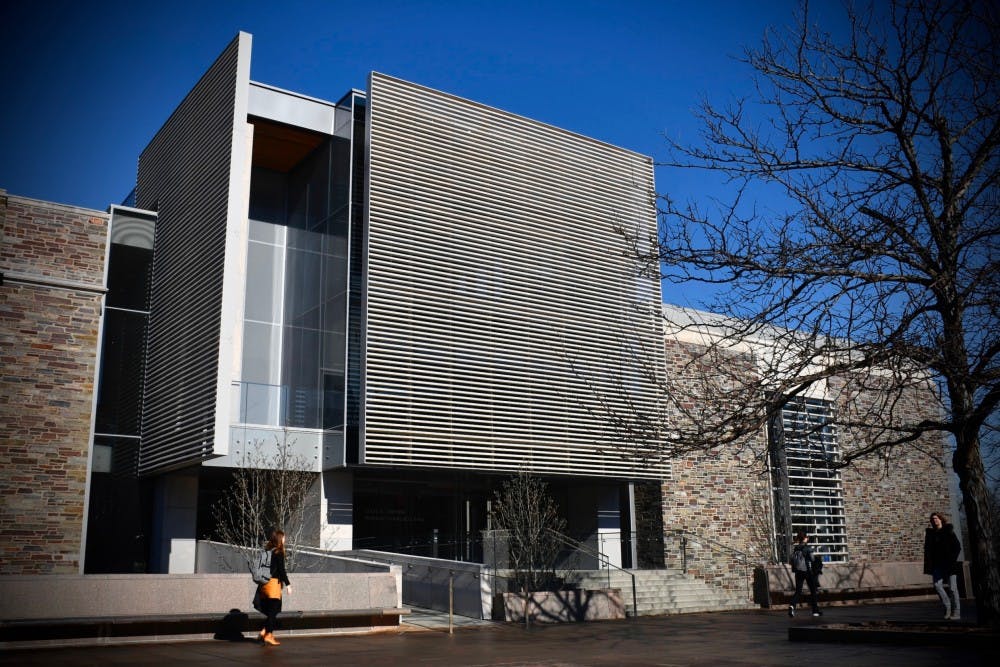On Feb. 6, a federal court struck down a 2018 Trump administration immigration policy that allowed officials to enforce the consequences of visa overstays without any prior warning.
Several of the University’s international students spoke with The Daily Princetonian, expressing relief regarding the potential impacts on their immigration status after the decision.
Instead of warning an individual who has overstayed a visa before enacting a punishment such as deportation or a bar on re-entry, as has been United States Citizenship And Immigration Services’ (USCIS) procedure for years, this now-overturned policy gave immigration officials the ability to execute immigration penalties without any prior notification to the offender.
In a 26-page decision, U.S. District Court Judge Loretta Biggs for the Middle District of North Carolina concluded that the policy was “both procedurally and substantively defective.”
According to the opinion, the policy failed to properly implement a “notice and comment” process, as required by the Administrative Procedure Act (APA), and the policy in contention is therefore unlawful.
The APA requires that a “legislative rule,” which includes the USCIS policy in question, must publish a “general notice of proposed rule making” in the Federal Register, “give interested persons an opportunity to participate in the rule making through submission of written data, views, or arguments,” and include “a concise general statement of its basis and purpose” with final version of the rule when it becomes law.
Going even further, Biggs’s decision outlines a direct conflict between the policy directive and the 1965 Immigration and Nationality Act. In the end, the opinion calls into question the legality of the policy change and brings up questions of executive versus legislative jurisdiction.
At the heart of this legal challenge was the issue of international students at American universities. Some universities worried that students could inadvertently overstay visas during the summer or after graduation. Indeed, it was a conglomerate of universities and educational institutions, including Pennsylvania’s Haverford College and North Carolina’s Guilford College, that filed the case against the administration.

During the proceedings, the University signed an amicus curiae brief alongside 65 other U.S colleges and universities.
Among other things, the brief asserted that “rules changes such as this make the United States a less welcoming place for international study and have a demonstrable impact on international interest in American higher education. Consequently, the new rule will be detrimental to both our institutions and the larger American economy.”
Several international students at the University who spoke with the ‘Prince’ reacted with relief, even though many were unaware of the 2018 policy until now.
“The court decision makes me feel more at ease,” said Tiffany Agyarko ’23, a student from Ghana. “I would have been extremely horrified if, after the amazing year I’ve spent here, I was not allowed to come back.”

Nigerian student Blessing Jegede ’21, who is concentrating in mechanical and aerospace engineering, echoed this sentiment.
“I think it’s helpful. And I do see it as a small victory because it takes away the harsh penalty of a three- to 10-year ban from re-entry,” said Jegede.
For some students, whose plans do not include staying in the United States upon graduation, the announcement was less impactful.
“Whilst I approve of the increased transparency, this decision does not make me feel any more or less comfortable as an international student. I plan to leave America as soon as I finish my studies, and so the legislation has very little effect on me,” said Harry Ayto ’23, who resides in the United Kingdom.
This decision, however, does not necessarily mark the end of this legal battle. The U.S. Department Of Justice has the chance to appeal the decision, and a policy proposal put out by the Executive Office Of The President suggests the administration may attempt to fix procedural errors and simply add a maximum stay for student visas. However, for now, the policy remains void across the country.
Deputy University Spokesperson Michael Hotchkiss emphasized that students ought not to read the recent ruling as a general relaxation of U.S. immigration enforcement.
"It is important to note that international students always need to be diligent about complying with the terms of their visas, regardless of the status of this case,” wrote Hotchkiss in a statement to the ‘Prince.’ “Any status violation carries the potential for serious consequences, and international students should consult with their adviser at the Davis International Center if they have any questions.”








